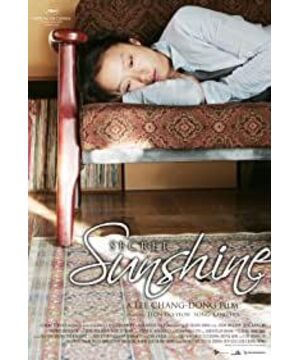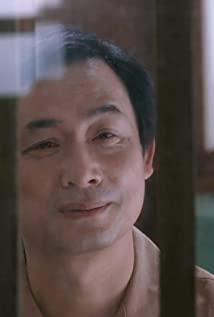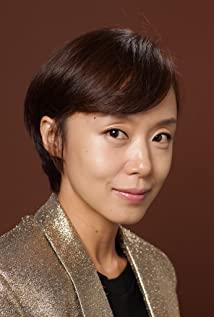However, a good actor also needs to play a good script. "Miryang" is definitely a work with depth. Just like the trend of non-commercial films in Korea in recent years, it tries its best to have a relationship with religion. The hybrid Buddhism and landscape of the two sects, "Miryang" is asking questions about the "great love" of Christianity. The heroine and her son depend on each other for life, and after her son's death, she is redeemed by her faith.
It was the male protagonist who accompanied her all the way, silently sending out an unrequited love that was close to the "Bible. 1st Corinthians. 13,4" explains the love of love: "Love is patient, and is kind; love is not jealous; love is not boastful, not arrogant, not rude, not self-seeking, not provoked, not calculating The evil of man..." So let the believers believe that God used him to testify for her, as the dawn in the heroine's life.
However, what the director wants to express is different in my eyes, which coincides with the phrase "God is in his heaven", not in this world.
The heroine's attitude towards faith has changed many times, from initially rejecting to accepting, and then from hating to getting rid of it. When her son was alive, she was noncommittal about religion, self-confidence is not a poor person, and she does not need belief. But when her son died, she was really desperate and became a poor person, so she relied on her faith, believing that everything was God's will and there must be arrangements.
But the problem arises when the heroine visits the murderer of her son, intending to forgive him in front of him and to preach the miracle of God on her. After being imprisoned, the murderer became a religious believer and believed that he was forgiven by God because of his tears and repentance. His love has the strongest conflict with the heroine, because the murderer has been forgiven, but he can't forgive him, this is a serious contradiction between belief and reality, so it is a dead knot in the heroine's heart.
She repeatedly took revenge on the Lord, declared war by throwing chairs in front of the church, made trouble during worship, tempted the pastor, and in the end she was even more resigned, trying to prove that she could overcome God and drive his kingdom away from Miryang. She finally became the most pitiful person, and faith pushed her to the bottom.
It is true that when people are in despair, "love" is the most important thing. If we talk about the most ingenious thing about the movie, it is the source of this "love". It is the "pity" of the believers for the protagonist that is useless, and even pushes her away. to the bottom of the valley. Christians can understand that the "pity" from God is confirmed on the hero; non-Christians can also think that it is "human", not "God", who redeems the heroine. In this way, it is both a gospel movie and an antichrist movie, all in one!
The director in charge of the camera is always on the side of the decision. In the ending, the heroine renounces religion to achieve personal liberation. In fact, the above-mentioned ridicule of compassion is also similar to Nietzsche's thought.
The ending is the sublimation of the climax. The murderer's daughter has no faith and feels deep regret in the scene where the heroine cuts her hair. Both of them are deeply saddened. It is the transfer of this kind of sin and the opportunity for the heroine to forgive! In fact, the religious metaphor contained in the haircut is also very strong, see also "Bible. 1st Corinthians. 11, 15" "It is her honor that a woman has long hair, because this hair is for her to cover her head." Or Samson's strength also comes from the hair, suggesting that cutting hair is to give up faith.
When she escaped from the hair salon and met the owner of a fashion store she had just met in Miryang, and chatted about the changes the store had made because of her opinions, she finally felt love in despair, the love of the world, not the love of religion . The knot in the heart is then relieved, and the existence of God becomes unimportant, only to realize that the "enmity" that should be forgiven has not been resolved, but the heroine's knot has been released because of this, so that she can live for that simple joy. laugh.
Perseverance because the hatred is forgiven, and release the curse because the hatred has not been released.
View more about Secret Sunshine reviews










